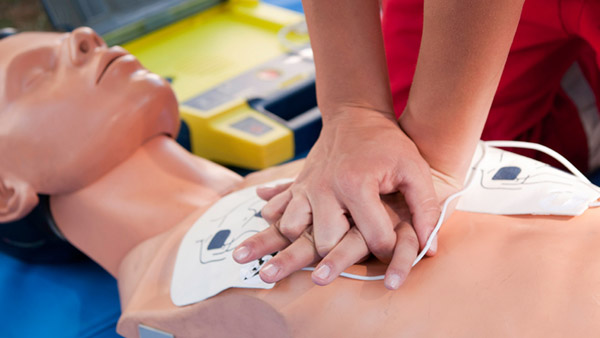Introduction
In our busy world, emergency situations can strike without caution. Whether it's a minor injury, a medical emergency situation, or a dangerous CPR Course Canberra circumstance, understanding how to supply first aid can make all the distinction. This is where a First Help course enters into play. Many individuals might question what they can gain from such training, and this short article aims to shed light on that.
By register in a First Help and mouth-to-mouth resuscitation course, you do not simply learn about wrapping wounds or executing CPR; you outfit yourself with important skills that might save lives. So, just what will you learn in a comprehensive training course? Let's study the details.
First Help Basics: What You'll Discover in a Thorough Course
Understanding First Aid
What is First Aid?
First help refers to the initial support provided to somebody struggling with an injury or ailment until expert clinical help gets here. It incorporates different strategies and abilities ranging from simple injury care to lifesaving techniques like mouth-to-mouth resuscitation (Cardiopulmonary Resuscitation).
Importance of First Aid Training
Why Needs to You Take a First Aid Course?
Taking a First Aid course is crucial for several reasons:
- Confidence: Recognizing exactly how to react in emergencies can impart confidence. Life-Saving Abilities: The capacity to perform CPR or aid with choking can save lives. Career Advancement: Several occupations need qualification in first aid. Community Duty: Learning ways you can aid others effectively.
Overview of CPR
What is CPR?
CPR, or Cardiopulmonary Resuscitation, is an emergency treatment done when a person's heartbeat or breathing has actually stopped. It integrates upper body compressions with rescue breaths to keep blood flow and oxygenation up until professional assistance arrives.
The Structure of a Comprehensive First Aid Course
What Does an Emergency treatment Course Include?
A well-shaped First Aid and mouth-to-mouth resuscitation course commonly covers the complying with subjects:
Introduction to First Aid Legal and Moral Considerations Scene Safety Basic Life Assistance (BLS) CPR Techniques Choking Relief Wound Care Management Burn Treatment Managing Shock Recognizing Clinical Emergencies Using an Automated External Defibrillator (AED)Legal Elements of First Aid
Are There Legal Effects Involved in Offering First Aid?
Yes, giving first aid does carry legal responsibilities referred to as "Good Samaritan regulations." These legislations shield individuals who aid others in emergencies, offered their activities are affordable and not reckless.
Scene Safety and security: The First Step
How Do You Make sure Scene Safety?
Ensuring scene safety and security involves analyzing the environment prior to coming close to the sufferer:

- Look for potential hazards (traffic, fire). Make certain it's secure for both you and the victim.
Basic Life Support (BLS)
What Function Does BLS Play in Emergency Situations?
Basic Life Support includes the principles of keeping life features till further clinical aid shows up. This section covers vital abilities such as:
- Checking responsiveness Activating emergency situation services Performing high-quality upper body compressions
Advanced CPR Techniques
What Are Advanced Techniques Covered in Mouth-to-mouth Resuscitation Courses?
Advanced techniques may consist of:
- Two-rescuer CPR Use of obstacle gadgets for rescue breaths Special factors to consider for babies and kids
Choking Alleviation Techniques
How Do You Assist Someone That is Choking?
Choking relief includes 2 important methods:

Wound Treatment Management
How Do You Effectively Handle Wounds?

Effective injury administration includes:
- Cleaning the injury with saline or tidy water. Applying antibiotic ointment. Covering it with clean and sterile dressings.
Burn Treatment
What Work Methods for Dealing With Burns?
Burn treatment differs by level:
Cool the shed under running water. Cover it with non-stick dressings. Seek clinical attention for extreme cases.
Managing Shock
How Is Shock Identified and Treated?
Recognizing shock includes looking for signs and symptoms like light skin, quick pulse, or confusion:
Lay the person down. Elevate their legs unless there are injuries protecting against this. Keep them calm till aid arrives.Recognizing Clinical Emergencies
What Sorts of Medical Emergencies Ought To You Understand Of?
Common medical emergency situations include:
- Heart assaults Stroke Severe allergies Comprehending these problems helps you act quickly.
Using an Automated External Defibrillator (AED)
How Do You Make use of an AED Correctly?
Using an AED involves turning it on, connecting pads according to images on the tool, and adhering to voice motivates carefully.
Importance of Continual Learning
Why Is Constant Understanding Important in Emergency Treatment Training?
Continuous knowing guarantees you remain updated on best techniques and brand-new methods in emergency treatment care.
FAQs Regarding First Aid Courses
What Is Included in a Criterion First Aid Course?- A basic program normally covers fundamental life support, wound administration, choking alleviation techniques, and lawful considerations.
- Most courses vary from 6 hours to 16 hours relying on the depth of material covered.
- Yes, upon effective completion of many courses, individuals receive a first help certificate, which is typically legitimate for two years.
- Yes! Numerous companies provide on-line training courses that give flexible discovering environments while still being effective.
- Absolutely! Hands-on technique is crucial for understanding abilities like upper body compressions and using AEDs effectively.
- Generally, there are no age restrictions; nevertheless, participants must be emotionally proficient to learn these life-saving skills effectively.
Conclusion
Enrolling in a detailed emergency treatment course gears up individuals with important understanding that can save lives throughout emergency situations-- whether in your home, work, or out in public areas! From recognizing basic life assistance treatments such as mouth-to-mouth resuscitation to discovering how to manage wounds appropriately or identify indicators of shock-- these training courses supply invaluable training that any person can profit from!
As we browse via our every day lives full of changability-- what better means than preparing ourselves via understanding gained from structured training sessions focused on saving lives?
In conclusion-- if you're contemplating using up any kind of form of first-aid training-- never think twice! Outfit on your own today with these powerful devices because preparedness truly makes all the difference when every second counts!